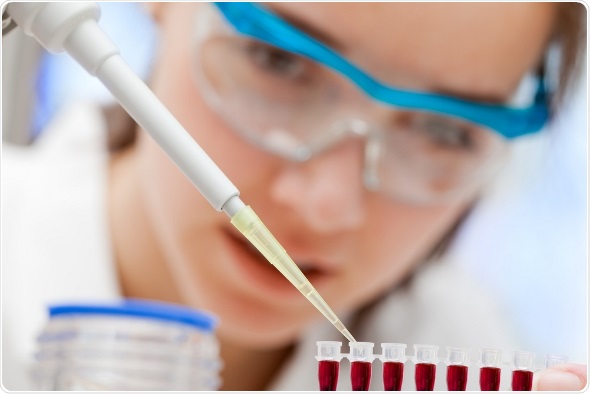Research published yesterday indicates that recurrence of human papillomavirus (HPV)-induced cancers affecting the oropharynx (the area of the throat just behind the mouth) can be predicted by blood and saliva tests that screen for DNA fragments from HPV that have been shed by cancer cells.
Rates of HPV-related oropharyngeal cancer are increasing in the United States, with 70% of the 30,000 oropharyngeal cancers diagnosed in the United States being caused by HPV rather than alcohol and tobacco use. Recurrences of these cancers are generally detected when patients report ulcers, pain or lumps in the neck. Although regular check-ups are conducted, imaging tests do not reliably show very early cancer growth, and the awkward location of oropharyngeal cancers (tonsils, throat and base of the tongue) make it difficult for physicians to spot lesions.

Image Credit and Copyright: Shutterstock, Inc, Luchschen
Dr Joseph Califano, professor of Otolaryngology - Head and Neck Surgery explained,
“There is a window of opportunity in the year after initial therapy to take an aggressive approach to spotting recurrences and intensively addressing them while they are still highly treatable. Until now, there has been no reliable biological way to identify which patients are at higher risk for recurrence, so these tests should greatly help”.
He added that up to 90% of patients with early-stage, HPV-related oral cancers survive for at least 2 years and that, even after recurrence, more than 50% of patients live at least another two years. The new blood and saliva tests have the potential to further improve these rates.
Blood and saliva samples from 93 patients who received surgery, radiation, or combined chemotherapy and radiation for oropharyngeal cancer were collected both before and after treatment. Of these patients 81 had HPV-positive tumours, but none had distant metastasis. The patients were at various disease stages, varying from early-to advanced-stage cancers.
The presence of HPV DNA in saliva after treatment was predictive of recurrence in 20% of cases. The accuracy of predicting a recurrence was 55% when HPV DNA was detected in blood samples. When HPV DNA was found in both blood and saliva samples after treatment, recurrence was accurately predicted in 70% of cases.
Although the results are promising, further refinements are needed to improve detection of possible recurrences. HPV is highly prevalent in our bodies, explained Dr Califano, so “we can’t be sure our test results are cancer-specific and not due to other forms of HPV infection or exposure.”
His team is now looking for other genomic biomarkers that would increase the specificity of HPV DNA testing in blood and saliva.